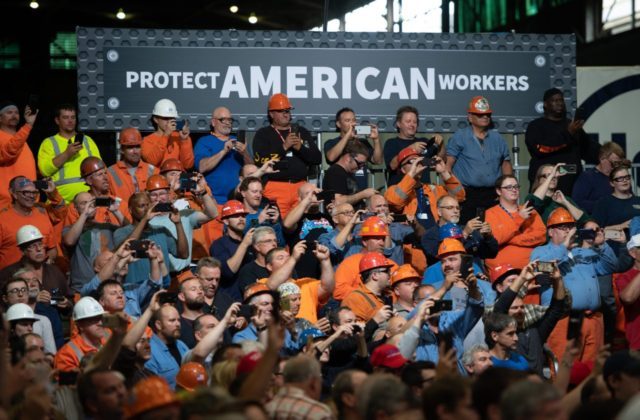Rumors of a slowdown in American manufacturing were greatly exaggerated.
The United States added 32,000 new manufacturing jobs in October, more than 1,000 every day, including holidays and weekends. Twenty-one thousand of the new manufacturing goods were in durable goods manufacturing, including more than 10 thousand in transportation manufacturing. More than 6,000 new jobs were added in autos and auto parts. Nearly 5,000 jobs were added by makers of machinery.
October is not typically a strong month for manufacturing jobs. In fact, the U.S. has not created this many manufacturing jobs in October since 1998, according to Department of Labor data. Manufacturing was expected to grow by just 13,000 jobs.
October was a surprisingly strong month for jobs overall, with the economy adding 250,000 jobs. That far exceeded expectations of 190,000.
The strong growth of manufacturing comes after widespread predictions that trade disputes and tariffs on metals would weigh on domestic manufacturing. Instead, domestic manufacturing is booming.
The job growth in autos and machinery, heavy users of the tariffed steel and aluminum, indicate these have not been hit by the tariffs. Machinery manufacturing employment is up 4.5 percent from a year ago, outpacing the rate of growth for the broader economy. Transportation manufacturing jobs have grown by 3.6 percent.
Fabricated metals manufacturing jobs are up 3.6 percent from a year ago. These are perhaps the jobs most directly in the line of fire from metals tariffs. They include toolmaking, hardware making, and architectural and structural materials manufacturing. For the month, however, this category shed 100 jobs, a decline of 0.1 percent, on a seasonally adjusted basis.
Although the forecast job losses due to metals tariffs have not occurred, there are signs that U.S. tariffs on China are adding to jobs. The U.S. added 2,200 jobs manufacturing computers and electronics, the first area of Chinese manufacturing hit by tariffs, in October and these are up 2.2 percent from a year ago.
Food manufacturing, an area some thought would be hit by retaliatory tariffs, boomed in October, adding 6,800 jobs. These are up 2.1 percent compared with a year ago.

COMMENTS
Please let us know if you're having issues with commenting.